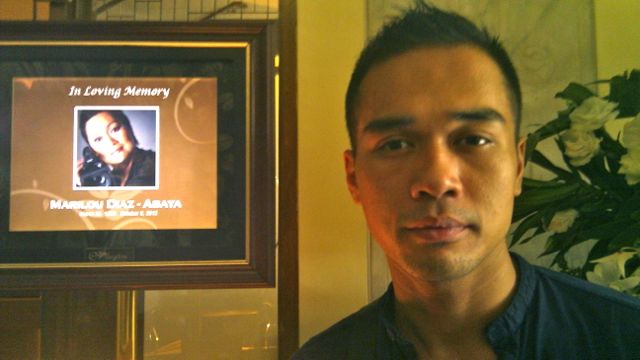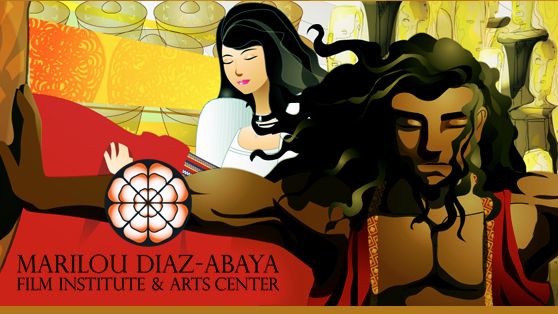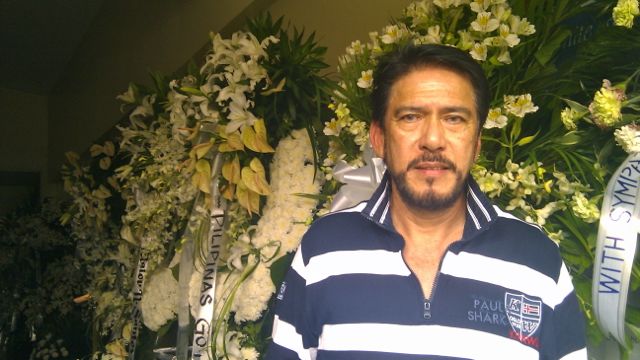SUMMARY
This is AI generated summarization, which may have errors. For context, always refer to the full article.

MANILA, Philippines – “More than a mother, more than a filmmaker, she was a teacher,” Marc Abaya tells me while we are seated in a quiet area of the Ateneo Chapel where the remains of his mother, the acclaimed film director Marilou Diaz-Abaya, has been displayed for public-viewing.
Her wake has drawn fellow filmmakers, media executives, celebrities and politicians; but also students, film enthusiasts and admirers of her work whom she may have never met in person but whom she has touched nonetheless.
Marc is in charge of the arrangements for everything, from the wake logistics to worrying whether or not the burial will start on time if the Ateneo Blue Eagles were to lose the UAAP game that night leading to disastrous traffic caused by a Saturday game.
But in spite of his busy schedule, Marc found time to talk to RAPPLER about what he learned from his mother and, perhaps, what we can learn from her as well.
The conversation brought out fond memories and, of course, hearty laughter.
1) Keep your mouth closed. “This is one of the first things she ever taught me, table manners. There must be a more profound meaning to it but I can’t think of one right now.”
2) Be humble. “It’s very difficult to be humble.”
3) To hope. “That’s ultimately what makes us human, what makes us better people.”
4) Magis. “One of our last conversations happened when I barged into her room one day and told her, ‘I’m getting a new tattoo and you’re going to design it.’
“She gave me one word, Magis. To be a man for others, to go beyond yourself.”
5) This one is in terms of acting: less is more.
6) Chopin (sho-pahn), not “choppin.” “She would always suggest I listen to classical [music] and always through films about classical composers like the film Amadeus and Immortal Beloved.
“She was also into the Beatles but I got more into Led Zepellin because of my dad.”
7) When she took my brother and I to Japan, she became Japanese. “She must’ve been a geisha in a past life. It’s just the way she totally absorbs a culture and makes it a part of her.”
8) Respect all people.
9) I don’t know if this is a lesson but she pointed me to the right people. “That’s how I got to train [in acting] under Johnny Delgado, which was a very humbling experience. She made sure that I was surrounded by guardian angels.”
10) Love for knowledge. “She loved learning, she loved books.
“College graduation was a sad day for her but she still continued to learn after that.”
The director as a teacher

Funny enough, Marc really was taught by Direk Abaya in a classroom, becoming a student in her film class while an Atenean undergraduate. Inevitably, this state of affairs led to some pretty embarrassing moments.
“She would whip my balls!” Marc laughingly recalls. “There was a time she told the class about my virginity and how I lost it.”
For Marc, his mom’s love for learning and teaching shaped everything she did. “Even filmmaking,” he says, “was a means to an end, to teaching.”
Her passion for imparting knowledge eventually found its way to a film institute of her own that taught aspiring, young directors how to hone their craft and produce excellent films.
A guardian angel for Philippine cinema

She wanted to make it easier for talented filmmakers to show their masterpieces to the public and make a decent living out of making films.
She wanted nothing less than a resurgence of the golden era of Philippine cinema.
Senator Tito Sotto, who was also present at the wake, will always be grateful for Diaz-Abaya’s indispensable contributions to the creation of the bill that created the Film Development Council.
It was Diaz-Abaya and director and actress Laurice Guillien who provided the senator with background information and research about the film industry that enabled him to sponsor the bill.
“She was this close to me while I was defending the bill in senate,” says Sotto while indicating a distance of a foot using his palms. “She was sitting right beside me, always supporting me.”
All efforts Diaz-Abaya poured into the crafting of the bill, Sotto says, came from a desire “to give the film industry a boost.”
There is no doubt that if Marilou Diaz-Abaya was alive today, she would still have much to teach anyone.
She was a woman who mastered her craft, touched lives and told stories with unparalleled skill and insight.
Though she may not be here to teach us in person, all the films, organizations, schools, class modules and even tattoos she has created still might have a lesson or two to impart. – Rappler.com
Add a comment
How does this make you feel?
There are no comments yet. Add your comment to start the conversation.